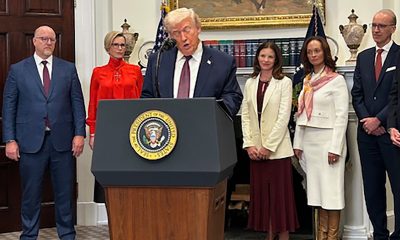a&e features
Paradise lost: Remembering the popular Rehoboth men’s guest house
Beach town’s pioneering B&B welcomed gay clientele before arrival of AIDS
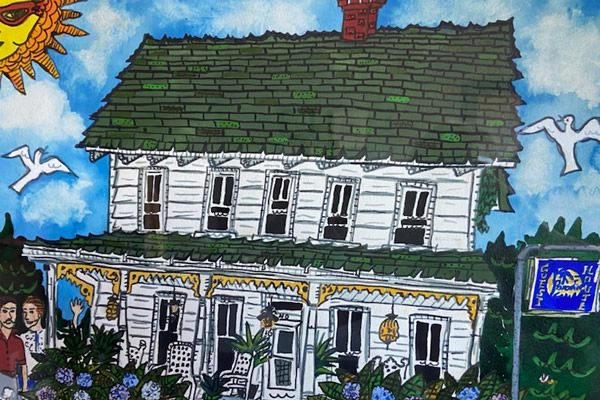
“What hath night to do with sleep?” John Milton, A Journey to Paradise
In February 1987, 30-something Bill Courville was at his Mt. Pleasant neighborhood home. He opened the new edition of the Washington Blade. As usual, he read it from beginning to end. With a Ph.D. in psychology, Bill enjoyed the classifieds. It lifted his spirits after reading obituaries of gay men and news of meager AIDS funding from the Reagan administration. Sandwiched between personals and escorts were real estate sales listings, including a one-inch ad about a B&B in downtown Rehoboth Beach, Del.
Bill thought about his youthful days living in New Orleans and working at the Maison De Ville, a small dusty red stucco painted guest house overlooking Toulouse Street. There Tennessee Williams had once lived while penning “A Street Car Named Desire” — when not sipping Sazarac cocktails in the garden courtyard.
He circled the ad and placed it on the kitchen counter for his lover, Bob, to read. The couple had met two years earlier crossing the P Street Bridge and had gradually merged their lives. After Bob looked at the ad, Bill suggested: “Let’s go look at this! We will have a business and an income — and a place to live!” Born in Minnesota, Bob Jerome, the more cautious of the pair, had grown up in California, attending college in Claremont and later working as a Senate staffer. Like Bill, he had a doctorate and traveled throughout the world before their P Street encounter. Unlike Bob, however, Bill never had been to Rehoboth. Nevertheless, Bill insisted this could be their next adventure or at least an excuse to visit the shore off-season.
“It’s a great seasonal resort,” Bob responded positively. “Everybody goes there. There’s gay life!”
The next weekend, they crossed the Chesapeake Bay Bridge and drove to Paradise. Rehoboth was mostly shuttered. But the Renegade bar was open at the fringe of town as was the Blue Moon along the gaying Baltimore Avenue. Driving one street over, they arrived at 40 Maryland Ave.
John, the Realtor, whose lover “Dolly” performed at the Moon, met the couple at the 19th-century house. “It was pretty awful,” remembers Bill. The fatigued Paradise Guest House sign was washed-out and the wide front porch with its handcrafted trellis lusted for paint. The pipes were drained. There was no heat or electricity. There were slivers of mirrors glued on living room walls, a disco ball hanging from the ceiling, 1930s over-stuffed maroon chairs, and yard sale grade furniture facing an old TV. The scent of stale cigarette smoke lingered in the ceilings and walls.
As they wandered through the 28 rooms — most barely wide enough for a floor mattress with a thin plastic sheet and an occasional odd-fitting dresser — they eyed stacks of men’s magazines (Honcho, Mandate, Bound & Gagged), iconic videos like “Boys in the Sand,” “Stryker Force,” and “Pacific Coast Highway,” along with chests of dildos in every imaginable size. Off the living room, a narrow passageway at a left angle to the main corridor led to the first-floor bedrooms. At the end was a trap door. They didn’t venture down. “Seasonal resorts like the Paradise were kind of like bars,” Bill explains. “They look great at night but don’t look at them during the day.”
On their drive back, the couple chatted about the venture. “I told Bill that if we were going to invest, he needed to run it so we could learn the business.” Bob knew his income would cover their personal expenses as long as Bill was willing to do the day-to-day management. “We were youngish. I don’t think we thought about what a massive undertaking it was…. But it seemed right.”
After purchasing the property, they along with some friends had just a few months before the 10-week season began on Memorial Day weekend. “We’d drag them down there and make them work, saying, ‘Oh, you can go to the beach.’ But, of course they never did go as it was always cold and rainy.” Bill wondered, “Does the sun ever shine here?”
Those next weeks were frantic: discarding discolored mattresses and sex toys; tearing out faux bedroom walls to restore the original 14 rooms; buying new white wicker furniture; upgrading the bathrooms, deck, and kitchen. Everything was thoroughly cleaned. Fresh white paint glistened on the walls and gray-painted floors replaced piles of tattered, sandy rugs. A local lesbian contractor built sturdy outside showers replacing a rickety wooden stall connected by a water hose and lined with reflective aluminum foil — designed more for strutting than showering.
“It was a huge undertaking,” admits Bill. “Everything we had was sunk into it. It had to be open!” He remembers one man calling a few days before asking if he could change check-in to Wednesday. “No, you can’t,” Bill said flatly. “You can come Friday at 2 o’clock, but not one minute sooner!”
With little time to advertise in this pre-Internet era, they did their best to explain the changes to former guests, beginning with its new name: The Rehoboth Guest House. More importantly, it now was open to lesbians as well as straights and there was no smoking. “We had a mix of friends,” says Bill. “So it would be gay-owned and operated but pretty much open to whoever wanted to come…. We had been discriminated against for most of our lives. If you don’t want to come you don’t have to.”
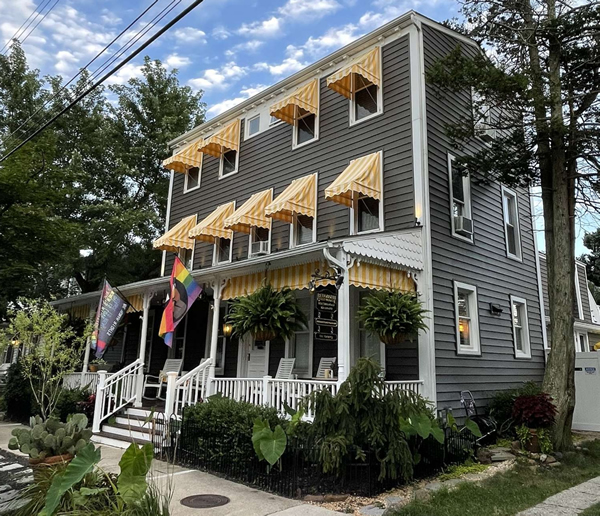
Remembering Paradise
Reactions from Paradise veterans varied when Bill and Bob discarded the blue, white, and yellow “Paradise Guest House” sign and, more importantly, its ethos of male eros. One of the new owners’ early supporters was Charlie Allen, who worked in the Baltimore schools but summered in Rehoboth. “He was writing a book,” Bill reveals, “called ‘Summer Sisters’… they were sisters for the summer.” Bob interjects, “The other part of the title was ‘Some Are Not.’ So, it was ‘Summer Sisters [pronounced Some Are Sisters]: Some Are Not.’Charlie died before publishing his book—which has never been found.
Unlike Charlie, “some hardcore folks were upset,” Bob recalls. “This used to be a gay male oasis” where men could “be themselves: wearing dresses; walking around naked; having piercings everywhere. They could get out of their suits and live the lives they wanted with people like them.” In an understanding tone, Bob adds: “That’s hard to take away.” The Paradise was a safe spot not only for Philadelphia accountants, D.C. staffers, and Baltimore teachers, but college kids enjoying summer break, career embarking twinks, and closeted locals seeking safe harbor.
Charlie was best friends with the German-accented Paradise owner Herbert Koerber and his boyfriend, Alvarado Ortiz-Benavides, whom everyone called “Mami”— colloquial Spanish for sweetheart. A gregarious man with fading hair and a reddish beard, Charlie often helped Mami with housekeeping and other chores. Mostly, though, he just enjoyed the sexual freedom of Paradise and the camaraderie among male guests. Some returned each year for a week, others visited more frequently for long weekends, and a few stayed the entire summer. Most guests were younger than Charlie’s 40 odd years, but everyone seemed to get along.
Most of Koerber’s clientele came from word-of-mouth advertising, although there was a classified ad in summer issues of the Washington Blade: “friendly guesthouse, close to beaches and bars.” One of the very first media stories about gay Rehoboth appeared in the May 1980 issue of this iconic paper. It described Paradise as “utterly comfortable” and quoted 38-year-old Herbert: “Tell people I can put them up — maybe even give them a discount during the week — but on weekends, after the bars close, my lobby will be packed.”
Before Herbert opened Paradise, in 1979, there were no openly gay-owned or gay-friendly advertised guest houses in Rehoboth. The Sandcastle, a decrepit speakeasy-like rooming house owned briefly by several gay men, had burnt to the ground four years earlier. The grand Pleasant Inn Lodge, hosted by the reclusive, debonair bachelor Peck Pleasanton and his octogenarian mother, Bessie, welcomed an occasional well-behaved “single” gentleman.
During eight seasons, Paradise evolved as did Herbert and Mami. The two were an odd pair. Herbert, a “fussy queen” who swore like a sailor, was tall and thin with longish hair and a handlebar mustache. He was always tanned even though his forehead would get beet red given his German complexion. The much shorter Mami, whose family was from South America, was soft-spoken and very sweet. Compared to the larger-than-life Herbert, he was less memorable to guests. Bob describes Herbert as “the German businessman. Mami was the onetime boy-toy.” They wintered in Key West, operating a gift shop and hawking kitsch souvenirs like black velvet paintings and seashell coasters.
Herbert monetized every aspect of Paradise, creating a sexual Disneyland. With 28 “teensy rooms the size of bathhouse cubicles,” there could be upwards of 50 men checked-in along with their friends and friends of their friends, wandering in during the night. However, the number of bathrooms — two full baths and two halves — did not expand. “It was shabby and crowded, but we were young and didn’t care,” one Paradise regular muses. “It had a reputation. It was our party house.”
The second floor became clothing optional with men often walking around with towels during midnight hours. Plywood partitions were set between rooms with guests on one side having a window and the other windowless. Herbert’s “summer curtains” served instead of doors, which allowed air (and guests) to circulate. Those with bedroom windows overlooking the sundeck could easily extend an invitation to a coconut-lotioned twink or a weightlifting hunk. “Everything went on at the deck and in the windows and rooms behind it,” recalls a frequent guest. There were late Saturday afternoon happy hours and skit contests. Staging was festive, if not overly decorative, with a jerry-rigged backstage area for costume changing. A raucous backyard crowd cheered contestants.
Originally, there was a huge gabled attic bedroom that required ascending a steep stairway. Herbert slashed it into a tiny single air-conditioned room with the remaining space transformed into an after dark playground full of mattresses with an aroma of poppers and pot. “Herbert turned every square inch of that attic into a bed sleeping sex area. It was masterful,” Bob says in a praiseworthy tone. “Every inch was geared toward pleasure” And, as he and Bill later discovered, There was a leather sling in the “dungeon,” a 10 x 12 cinder block walled room accessed only from the first floor trap door.
Room rates were low and backyard camping was just $5 for those bringing tents. Campers, though, had to be late night partiers. Before dawn, visitors often entered from the alley along a little path leading to the unlocked side gate. Nocturnal grunts, gasps, and groans harmonized to sounds of crashing waves. Back then, as one Paradise regular stresses, “Sex wasn’t a taboo thing. It was like going to lunch! It was as common as going for a cocktail.”
During the day, Herbert was often found in his flip-flops, T-shirt, and khaki shorts, puttering in the garden or tending to his beloved lacecap hydrangeas gracing the front yard. Herbert was estranged from his German-speaking family so Paradise regulars became his family. Friendly, he knew everyone by their first name but don’t ask to reserve a specific room. One returning guest remembers phoning Herbert for a reservation and requesting a first-floor room with a door: “Oh, honey!” Herbert laughed. “It’s just first come, first served.”
Herbert did repairs only when absolutely necessary. But he’d always be painting, using just one color: white. The exception was the wrap-around front porch, lined with rocking chairs, which had a gray floor and ceiling along with knob and tube wiring. Throughout the house, guests used it to hang clothes since there were no closets.
In the early to mid 1980s, Paradise thrived as a money making machine — a bathhouse on the beach. As the number of gay-owned restaurants and bars multiplied along with accompanying media attention, more gay men vacationed at Rehoboth and visited Paradise. “There was a routine,” one recounts. “You’d get up late. Get yourself down to the gay beach. Do a day at the ocean, getting too much sun. Then there was happy hour at the Moon. You had to be there and have a nice look. Then you’d go back, take a nap, and then go to dinner. Then, onto the Renegade!”
Herbert provided a weekend shuttle to the Renegade. About 10 o’clock, he’d drive up in his light colored blue and white ’60s VW van, hop out and, as a regular recollects, “Scream down the hallways: ’Get your asses down here!’” He shuttled guests back-and-forth, with the last pick-up at 1. ”I remember Herbert telling people in his heavy accent, ‘If you miss the last bus, you have to walk the fuck home!” But his gruffness masked protectiveness. ”He’d warn them he was going and he would even count!” Another frequent visitor remembers Herbert “as the kind of guy you’d call at 3 o’clock in the morning to say, ‘I’m in jail.’ And he’d be there.”
Paradise Lost
In 1980, reports surfaced about clusters of young gay men contacting Pneumocystis pneumonia. Granted the majority of infections and deaths from this “gay cancer” were in New York City and San Francisco, but the Washington Blade published a landmark front-page story, “Rare, Fatal Pneumonia Hits Gay Men,” inJuly 1981.
Herbert began to worry. One guest, living in New York City and volunteering as an AIDS buddy, remembers porch conversations with Herbert. ”He was talking about buying a second one. Then he said, ’I’m concerned since so many people are getting AIDS, I’m not sure whether or not I’ll have a clientele.’”
For many gays, Paradise was a rare time to be themselves and to enjoy the camaraderie and support from other men at a beach resort. Sadly, for some, it was also a death sentence. Sexual desire and psychological denial coupled with governmental inaction and public apathy fueled the AIDS pandemic.
After the 1986 summer season, Herbert and Mami sojourned, as usual, to Key West; Herbert never returned. ”I can remember being surprised to hear that he was ill,” laments a longtime patron. ”He went quickly; we had no indications he was ill.”
Herbert died a week before Bill and Bob opened on Memorial Day weekend. Mami was with him until the end. Like Paradise, he disappeared into history and, along with Herbert and many of his guests, would be remembered by few.
James Sears’ latest book, “Behind the Boardwalk: Queering the History of Rehoboth Beach” will be published next year. Tom Kelch, manger of the Rehoboth Beach Guest House, contributed research to this article.
a&e features
Queer highlights of the 2026 Critics Choice Awards: Aunt Gladys, that ‘Heated Rivalry’ shoutout and more
Amy Madigan’s win in the supporting actress category puts her in serious contention to win the Oscar for ‘Weapons’
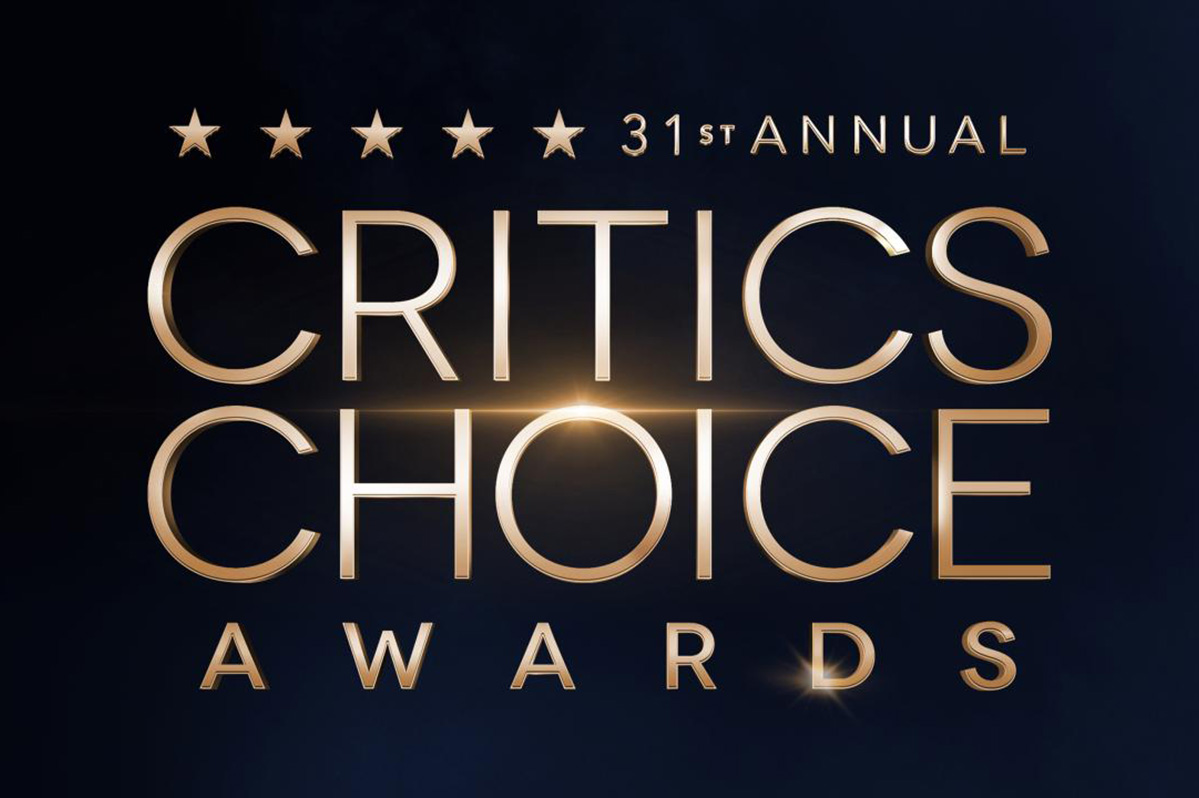
From Chelsea Handler shouting out Heated Rivalry in her opening monologue to Amy Madigan proving that horror performances can (and should) be taken seriously, the Critics Choice Awards provided plenty of iconic moments for queer movie fans to celebrate on the long road to Oscar night.
Handler kicked off the ceremony by recapping the biggest moments in pop culture last year, from Wicked: For Good to Sinners. She also made room to joke about the surprise hit TV sensation on everyone’s minds: “Shoutout to Heated Rivalry. Everyone loves it! Gay men love it, women love it, straight men who say they aren’t gay but work out at Equinox love it!”
The back-to-back wins for Jacob Elordi in Frankenstein and Amy Madigan in Weapons are notable, given the horror bias that awards voters typically have. Aunt Gladys instantly became a pop culture phenomenon within the LGBTQ+ community when Zach Cregger’s hit horror comedy released in August, but the thought that Madigan could be a serious awards contender for such a fun, out-there performance seemed improbable to most months ago. Now, considering the sheer amount of critics’ attention she’s received over the past month, there’s no denying she’s in the running for the Oscar.
“I really wasn’t expecting all of this because I thought people would like the movie, and I thought people would dig Gladys, but you love Gladys! I mean, it’s crazy,” Madigan said during her acceptance speech. “I get [sent] makeup tutorials and paintings. I even got one weird thing about how she’s a sex icon also, which I didn’t go too deep into that one.”
Over on the TV side, Rhea Seehorn won in the incredibly competitive best actress in a drama series category for her acclaimed performance as Carol in Pluribus, beating out the likes of Emmy winner Britt Lower for Severance, Carrie Coon for The White Lotus, and Bella Ramsey for The Last of Us. Pluribus, which was created by Breaking Bad’s showrunner Vince Gilligan, has been celebrated by audiences for its rich exploration of queer trauma and conversion therapy.
Jean Smart was Hack’s only win of the night, as Hannah Einbinder couldn’t repeat her Emmy victory in the supporting actress in a comedy series category against Janelle James, who nabbed a trophy for Abbott Elementary. Hacks lost the best comedy series award to The Studio, as it did at the Emmys in September. And in the limited series category, Erin Doherty repeated her Emmy success in supporting actress, joining in yet another Adolescence awards sweep.
As Oscar fans speculate on what these Critics Choice wins mean for future ceremonies, we have next week’s Golden Globes ceremony to look forward to on Jan. 11.
a&e features
Looking back at the 10 biggest A&E stories of 2025
‘Wicked,’ Lady Gaga’s new era, ‘Sexy’ Bailey and more
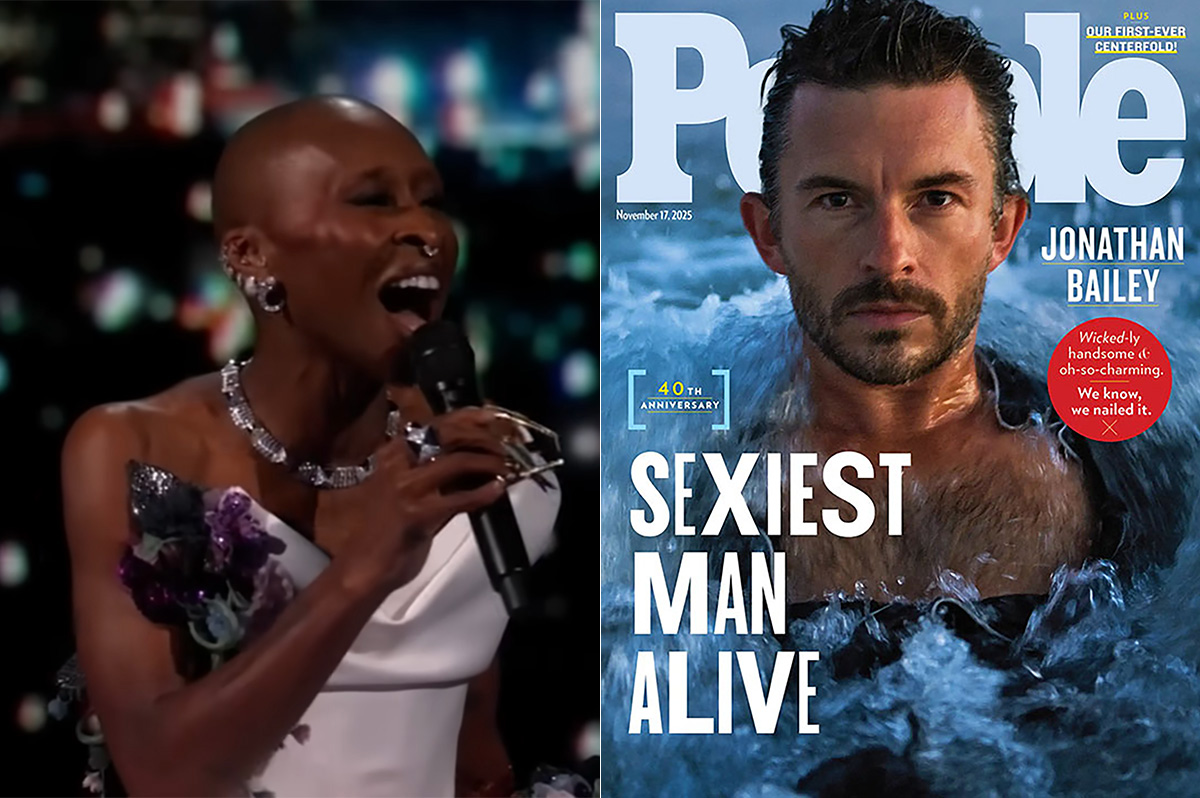
Although 2025 was a year marked by countless attacks on trans rights and political setbacks, the year also saw brilliant queer artists continuing to create art. From Cannes and Sundance Award winners now vying for Oscar consideration to pop icons entering new stages of their careers, queer people persevered to tell their stories through different media.
With the state of the world so uncertain, perhaps there’s no more vital time to celebrate our wins, as seen through some of this year’s top pop culture moments. While there’s no collection of 10 stories that fully encompass “the most important” news, here are some events that got the gays going:
10. ‘Mysterious Gaze of the Flamingo’ wins big at Cannes
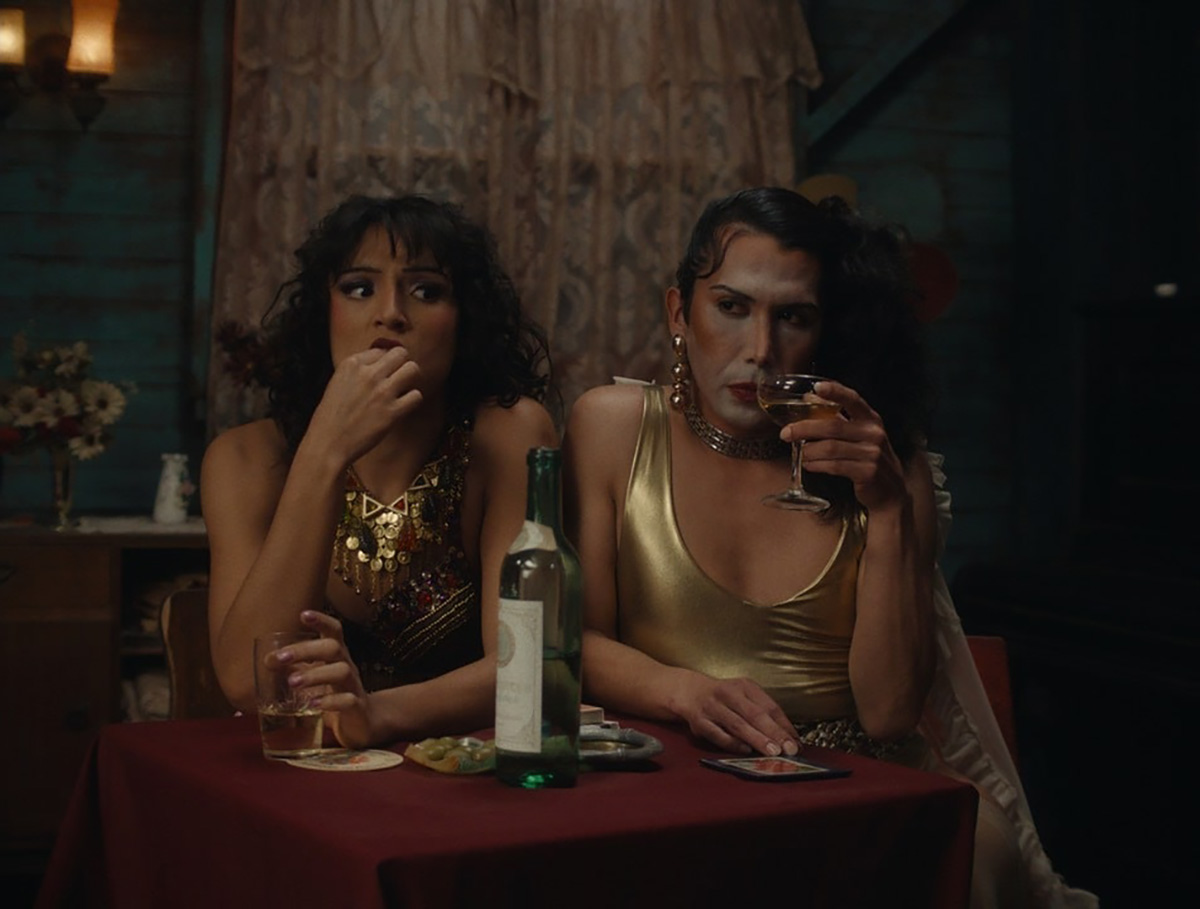
The Cannes Film Festival has become a crucial start for films hoping to make their way to the Oscars, and first-time director Diego Céspedes won the top Un Certain Regard prize for his intimate western “The Mysterious Gaze of the Flamingo.” The film is set in the ‘80s and is intended as an allegory for the AIDS epidemic. Seeing a film that unpacks vital queer history win one of the most coveted awards at Cannes has been a huge point of pride in the independent filmmaking community.
Since the film bowed at Cannes, it has been selected as Chile’s Oscar entry in the Best International Feature race. Speaking with The Blade during the film’s AFI Fest run in October, Céspedes said: At first, I was kind of scared to have this campaign position in the times that we’re living [in] here. But at the same time, I think the Oscars mean a huge platform — a huge platform for art and politics.”
9. ‘The Last of Us’ returns for an even gayer season 2
While the first season of The Last of Us gave us one of TV’s most heartbreaking queer love stories in the episode “Long, Long Time,” Season 2 doubled down on its commitment to queer storytelling with the blossoming relationship between Ellie (Bella Ramsey) and Dina (Isabela Merced). The show expanded on the pair’s relationship in the original video game, making it perhaps the central dynamic to the entire season. That unfortunately came with more homophobic backlash on the internet, but those who checked out all the episodes saw a tender relationship form amid the show’s post-apocalyptic, often violent backdrop. For their performance, Ramsey was once again nominated for an Emmy, but Merced deserved just as much awards attention.
8. ‘Emilia Pérez’ sparks controversy
Jacques Audiard’s genre-bending trans musical “Emilia Pérez” proved to be an awards season juggernaut this time last year, winning the Golden Globe for Best Musical/Comedy. But when the lead star Karla Sofia Gascón’s racist, sexist, and homophobic old tweets resurfaced, the film’s Oscar campaign became a tough sell, especially after Netflix had tried so hard to sell Emilia Pérez as the “progressive” film to vote for. Mind you, the film had already received significant backlash from LGBTQ+ audiences and the Mexican community for its stereotypical and reductive portrayals, but the Gascón controversy made what was originally just social media backlash impossible to ignore. The only person who seemed to come out of the whole debacle unscathed was Zoe Saldaña, who won the Oscar for Best Supporting Actress over Ariana Grande.
7. ‘Sorry, Baby’ establishes Eva Victor as major talent
Back in January at the Sundance Film Festival, Eva Victor (known by many for her brand of sketch comedy) premiered their directorial debut “Sorry, Baby” to rave reviews, even winning the Waldo Salt Screening Award. Victor shadowed Jane Schoenbrun on the set of “I Saw the TV Glow,” and seeing Victor come into their own and establish such a strong voice immediately made them one of independent cinema’s most exciting new voices. A memorable scene in the film sees the main character, Agnes (played by Victor), struggling to check a box for male or female, just one example of how naturally queerness is woven into the fabric of the story.
Most recently, Victor was nominated for a Golden Globe for her performance in the film, and she’s represented in a category alongside Jennifer Lawrence (“Die My Love”), Jessie Buckley (“Hamnet”), Julia Roberts (“After the Hunt”), Renate Reinsve (“Sentimental Value”) and Tessa Thompson (“Hedda”). The film also received four Independent Spirit Award nominations overall.
6. Paul Reubens comes out in posthumous doc
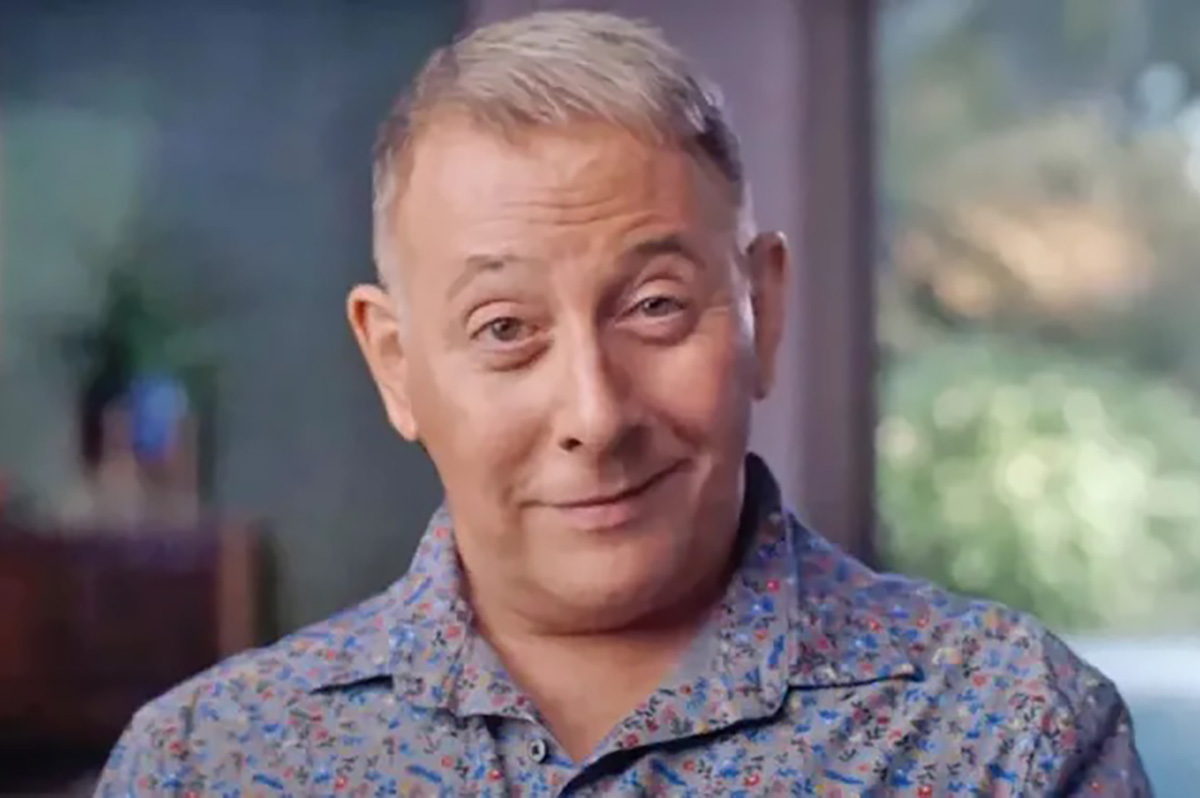
While Paul Reubens never publicly came out as gay before passing away in 2023, the two-part documentary “Pee-wee as Himself” premiered back in May on HBO Max, giving the legendary comedian a chance to posthumously open up to the world. Directed by Matt Wolf, the documentary explores how Reubens found his alter ego Pee-Wee Herman and why he kept his private life private.
The documentary won an Emmy in the Outstanding Documentary or Nonfiction Special category and remains one of the most critically acclaimed titles of the year with a 100% Rotten Tomatoes score. Also worth noting, the National Geographic documentary Sally told the posthumous coming out story of Sally Ride through the help of her long-time partner, Tam O’Shaughnessy.
5. Lady Gaga releases ‘Mayhem’
Lady Gaga entered a new phase of her musical career with the release of Mayhem, her seventh album to date. From the frenzy-inducing pop hit Abracadabra to the memorable Bruno Mars duet featured on “Die With a Smile,” seeing Gaga return to her roots and make an album for the most die-hard of fans was especially rewarding after the underwhelming film releases of “House of Gucci” and “Joker: Folie à Deux.” Gaga has been touring with The Mayhem Ball since July, her first arena tour since 2018. She even extended her tour into 2026 with more North American dates, so the party isn’t stopping anytime soon. And Gaga is even set to make an appearance next May in “The Devil Wears Prada 2.”
4. Cynthia Erivo, Ariana Grande perform at the Oscars
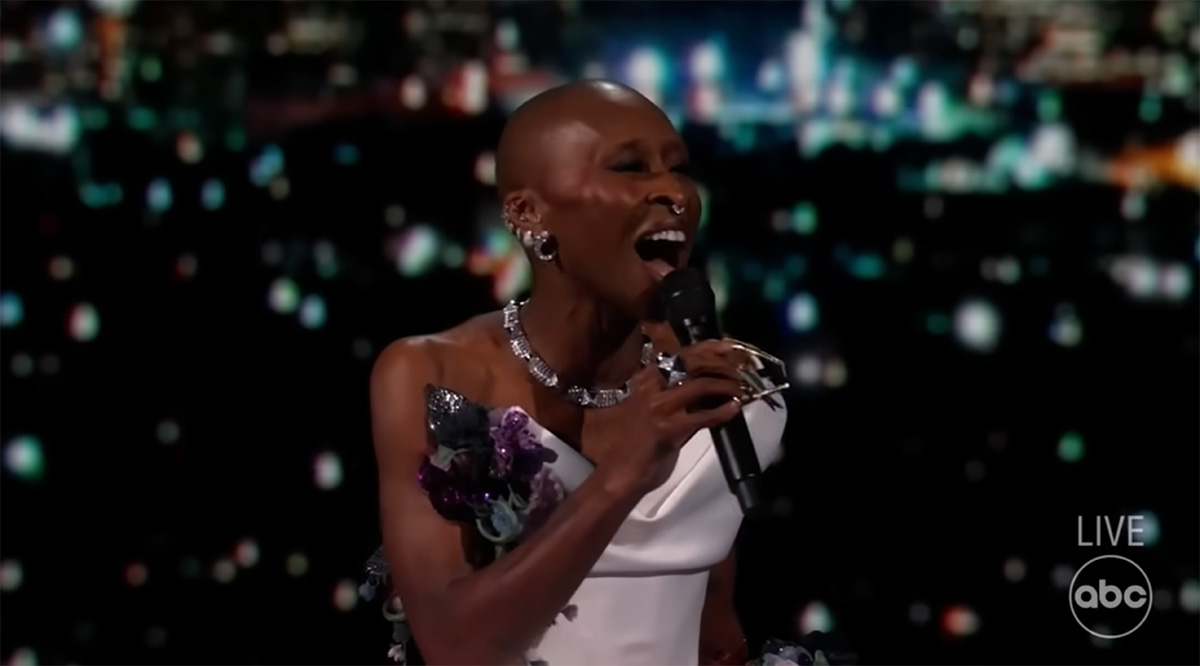
While “Wicked: For Good” didn’t quite reach the heights of the first film, we will forever have Cynthia Erivo and Ariana Grande’s breathtaking live performance that opened the 97th Academy Awards. The pair sang a rendition of “Over the Rainbow,” “Home,” and “Defying Gravity,” paying proper homage to the original 1939 “Wizard of Oz.” Even non-Wicked fans can’t deny how magical and brilliantly staged this performance was. With both Erivo and Grande up for acting Oscars last year, they’re hoping to repeat success and make history with consecutive nominations. Either way, let’s hope there’s another live performance in the making, especially with two new original songs (The Girl in the Bubble and No Place Like Home) in the mix.
3. Indya Moore speaks out against Ryan Murphy
Indya Moore has consistently used social media as a platform for activism, and in September, posted a 30-minute Instagram live speaking out against “Pose” co-creator Ryan Murphy. Moore claimed that Murphy wasn’t being a true activist for trans people. “Ryan Murphy, we need you to do more. You need to address the racism, the violence, and the targeting of people on your productions, Ryan Murphy. You do need to make sure trans people are paid equally. Yes, Janet did the right thing,” Moore said. Murphy was also back in the headlines this year for the critically panned “All’s Fair” and the controversial “Monster: The Ed Gein Story” starring Laurie Metcalf and Charlie Hunnam.
2. Cole Escola wins Tony for Best Leading Actor
Few pop culture moments this year brought us together more than Cole Escola winning a Tony award for “Oh, Mary!” the Broadway show they created, wrote and starred in (we love a triple threat!) Escola made history by becoming the first nonbinary person to win a Tony in the leading actor category, and seeing them excitedly rush to the stage wearing a Bernadette Peters-inspired gown instantly became a viral social media moment.
The cherry on top of Escola’s major moment is the recent news that they are writing a Miss Piggy movie with Jennifer Lawrence and Emma Stone producing — news that also broke the internet for the better. We cannot wait!
1. Jonathan Bailey makes gay history as ‘Sexiest Man Alive’
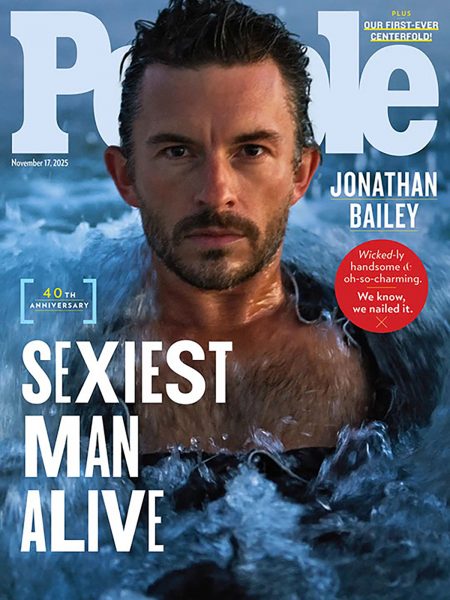
The same year as his on-screen roles in blockbusters “Jurassic World Rebirth” and “Wicked: For Good,” Jonathan Bailey made history as the first openly gay man to be named People magazine’s “Sexiest Man Alive.” The fact that it took 40 years for an openly gay man to earn the title is a signifier of how far we still have to go with queer representation, and seeing Bailey celebrated is just one small step in the right direction.
“There’s so many people that want to do brilliant stuff who feel like they can’t,” he told PEOPLE, “and I know the LGBT sector is under immense threat at the moment. So it’s been amazing to meet people who have the expertise and see potential that I could have only dreamed of.” In 2024, Bailey founded the charity titled The Shameless Fund, which raises money for LGBTQ+ organizations.
a&e features
Your guide to D.C.’s queer New Year’s Eve parties
Ring in 2026 with drag, leather, Champagne, and more
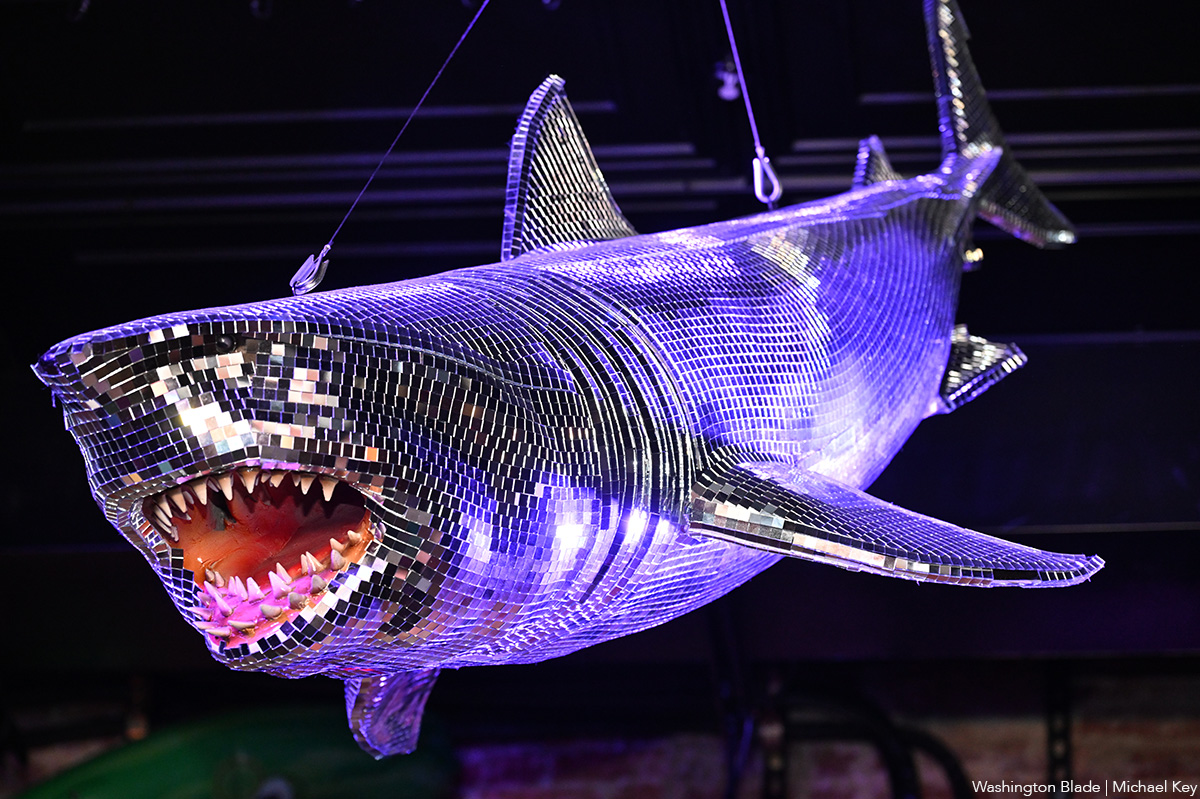
With Christmas in the rear view mirror, we can turn our attention to ringing in a much-anticipated New Year with a slew of local LGBTQ parties. Here’s what’s on tap.
Pitchers
This spacious Adams Morgan bar is hosting the “Pitchers’ Perfect New Year’s Eve.” There will be a midnight Champagne toast, the ball drop on the big screens, and no cover, all night long. The bar doesn’t close until 4 a.m., and the kitchen will be open late (though not until close). All five floors will be open for the party, and party favors are promised.
Trade
D.C.’s hottest bar/club combo is leaning into the Shark motif with its NYE party, “Feeding Frenzy.” The party is a “glitterati-infused Naughty-cal New Year’s Even in the Shark Tank, where the boats are churning and the sharks are circling.” Trade also boasts no cover charge, with doors opening at 5 p.m. and the aforementioned Shark Tank opening at 9 p.m.. Four DJs will be spread across the two spaces; midnight hostess is played by Vagenesis and the two sea sirens sensuously calling are Anathema and Justin Williams.
Number Nine
While Trade will have two DJs as part of one party, Number Nine will host two separate parties, one on each floor. The first floor is classic Number Nine, a more casual-style event with the countdown on TVs and a Champagne midnight toast. There will be no cover and doors open at 5 p.m. Upstairs will be hosted by Capital Sapphics for its second annual NYE gathering. Tickets (about $50) include a midnight Champagne toast, curated drink menu, sapphic DJ set by Rijak, and tarot readings by Yooji.
Crush
Crush will kick off NYE with a free drag bingo at 8 p.m. for the early birds. Post-bingo, there will be a cover for the rest of the evening, featuring two DJs. The cover ($20 limited pre-sale that includes line skip until 11 p.m.; $25 at the door after 9 p.m.) includes one free N/A or Crush, a Champagne toast, and party favors (“the legal kind”). More details on Eventbrite.
Bunker
This subterranean lair is hosting a NYE party entitled “Frosted & Fur: Aspen After Dark New Year’s Eve Celebration.” Arriety from Rupaul Season 15 is set to host, with International DJ Alex Lo. Doors open at 9 p.m. and close at 3 p.m.; there is a midnight Champagne toast. Cover is $25, plus an optional $99 all-you-can-drink package.
District Eagle
This leather-focused bar is hosting “Bulge” for its NYE party. Each District Eagle floor will have its own music and vibe. Doors run from 7 p.m.-3 a.m. and cover is $15. There will be a Champagne toast at midnight, as well as drink specials during the event.
Kiki, Shakiki
Kiki and its new sister bar program Shakiki (in the old Shakers space) will have the same type of party on New Year’s Eve. Both bars open their doors at 5 p.m. and stay open until closing time. Both will offer a Champagne toast at midnight. At Kiki, DJ Vodkatrina will play; at Shakiki, it’ll be DJ Alex Love. Kiki keeps the party going on New Year’s Day, opening at 2 p.m., to celebrate Kiki’s fourth anniversary. There will be a drag show at 6 p.m. and an early 2000s dance party 4-8 p.m.
Spark
This bar and its new menu of alcoholic and twin N/A drinks will host a NYE party with music by DJ Emerald Fox. Given this menu, there will be a complimentary toast at midnight, guests can choose either sparkling wine with or without alcohol. No cover, but Spark is also offering optional wristbands at the door for $35 open bar 11 p.m.-1 a.m. (mid-shelf liquor & all NA drinks).
-

 District of Columbia4 days ago
District of Columbia4 days agoTwo pioneering gay journalists to speak at Thursday event
-

 Colombia4 days ago
Colombia4 days agoBlade travels to Colombia after U.S. forces seize Maduro in Venezuela
-

 a&e features4 days ago
a&e features4 days agoQueer highlights of the 2026 Critics Choice Awards: Aunt Gladys, that ‘Heated Rivalry’ shoutout and more
-

 Minnesota4 days ago
Minnesota4 days agoTim Walz drops out of Minn. governor’s race





